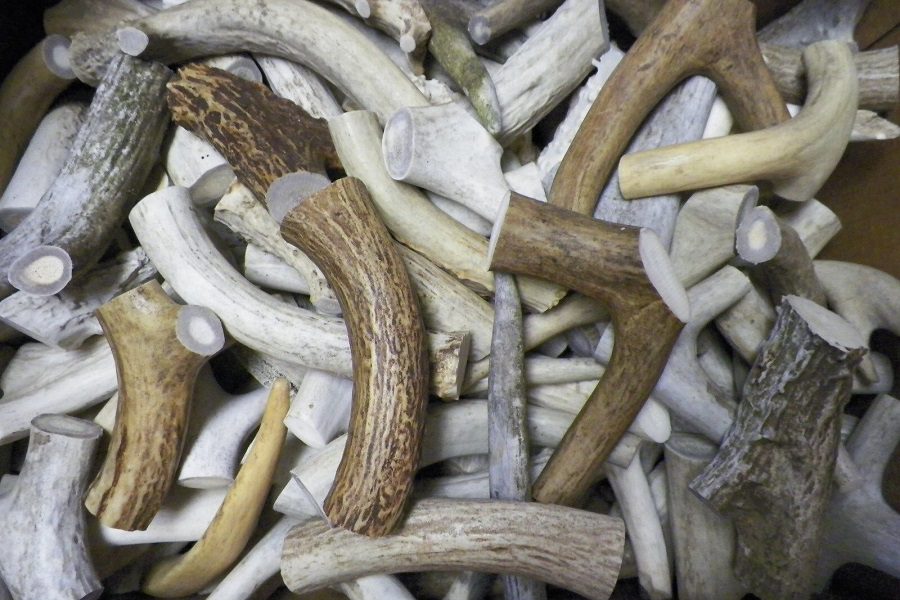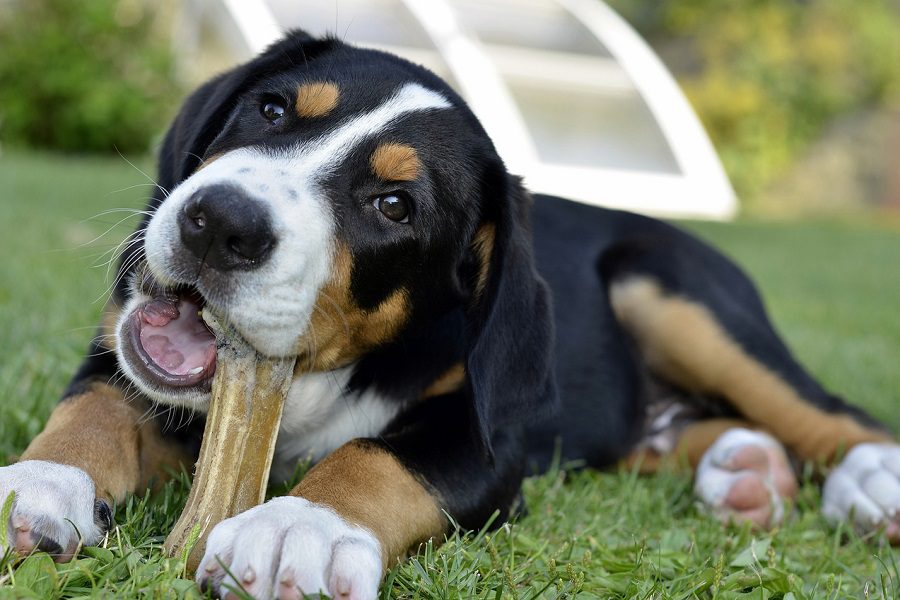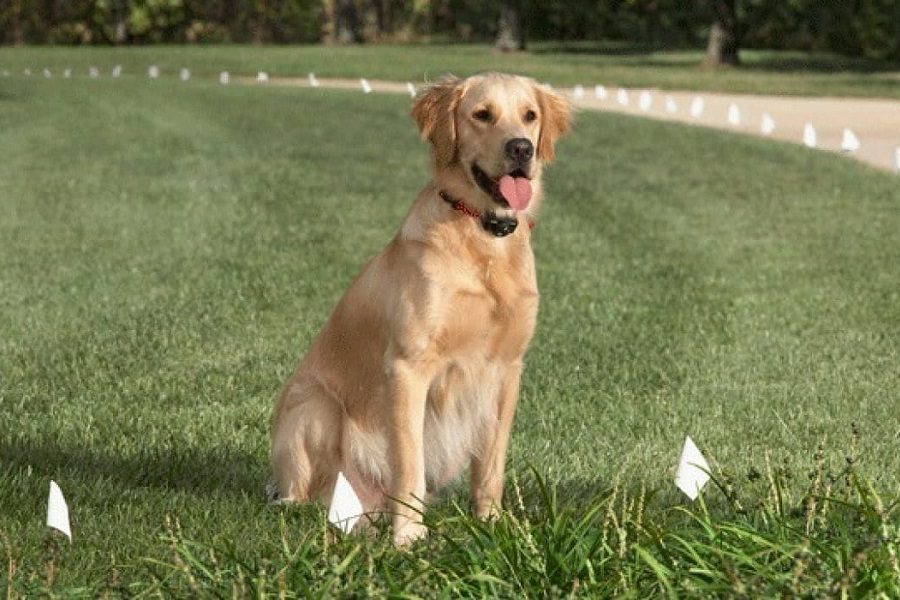Last Updated: 9 months ago
Have you noticed your puppy wont stop peeing?
If you aren’t sure if this is normal, count yourself among many who worry about their puppies health. Your tiny pup has an equally tiny bladder, so in most cases, it is probably nothing to worry about—except for the mess it leaves behind.
Keep reading to learn about why your puppy is peeing a lot and figure out if your puppy needs to seek attention from a veterinarian.
Why Do Puppies Pee A Lot?
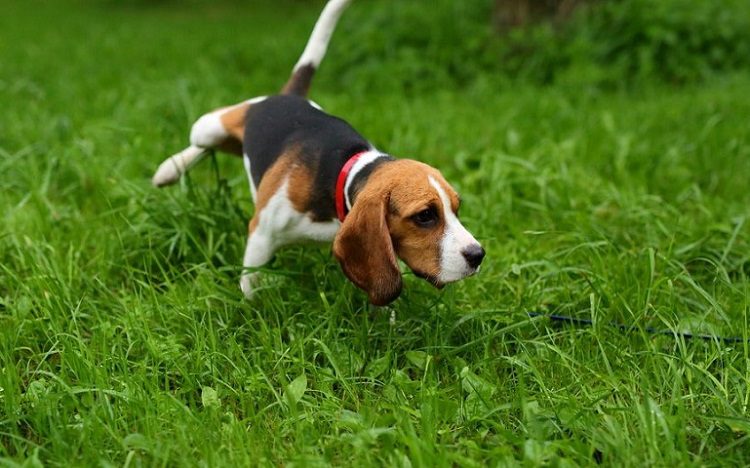
There are several reasons why a little puppy pees so much.
- The typical reason is a lack of bladder control. Puppies will be able to better control their bladders with age, some training, and habits.
- Frightening and exciting things and events may cause a little one with minimal bladder control to start peeing a lot.
- If it is hot, a puppy will drink more and, therefore, have to pee more.
- Excessive urination in a puppy can be a sign of certain medical issues, which are addressed below.
How Often Should My Puppy Pee?
Generally, a puppy can control his bladder for one hour per month of his age. So a two-month-old puppy is usually able to control his bladder for two hours before he has to urinate.
By the time a puppy reaches adulthood, he should be urinating once every four to six hours.
Tips On Potty Training Your Puppy
In the majority of cases, a puppy peeing too much is nothing to worry about. If you want to get a handle on your puppy’s way-too-frequent peeing, there are some steps you can take.
- Stick to a meal routine. Give your puppy food and water at specific times of the day, and then take away the bowls after he has finished. This way, you know exactly when your puppy last ate or drank something, so you can predict when they will need a potty break.
- Take them on regular potty breaks. A puppy can digest and be ready to expel food and water in as little as 5 to 30 minutes after eating and drinking. Once you become more familiar with how their body functions, you can schedule potty breaks at the right time to avoid having puddles on your floor.
- Be patient. Your puppy, especially if they are younger than 12 weeks, still doesn’t have full control of their bladder. They simply don’t have the ability or skills to control it. Consider getting doggy diapers until he is old enough for potty training.
Possible Medical Issues For Puppies Urinating Excessively
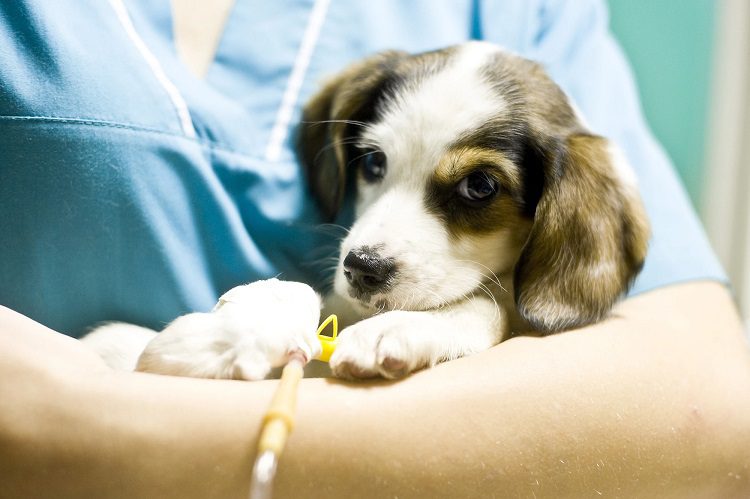
While most puppies pee a lot naturally, sudden, frequent urination can be a sign of certain medical issues.
Vaccines
If you notice your puppy peeing a lot after vaccinations, don’t worry. This is a common symptom that happens to some puppies. He should be back to normal within 24 hours.
If he is still peeing a lot after that time, call your vet and ask if you should be concerned. If the frequent urination is in combination with swelling of the face, neck, or body, difficulty breathing, disorientation, or other concerning symptoms, you should call the vet as soon as you notice.
Medications
In addition to vaccinations, certain medications will cause frequent urination as a side effect.
So if your puppy has recently started taking medication and is peeing excessively, call your veterinarian to check if that is a normal symptom.
UTI
Urinary tract infections can happen to dogs or puppies just as much as they happen to people. This is not a serious condition, but it is something that needs to be treated because it does cause discomfort. Usually, the treatment is a course of antibiotics.
UTIs can also be a sign of a more severe underlying illness, so your vet will likely want to do a more thorough diagnosis before giving you treatment.
Cushing’s disease
A condition caused by a benign (non-threatening) tumor in the pituitary gland. It leads to overproduction of the stress hormone.
If your puppy has also started to eat and drink a lot more in combination with peeing more, this may be something to worry about. Also look for fur loss, lack of energy, more panting, and obesity.
Diabetes
Like people, dogs can also get diabetes. One of the symptoms is increased urination.
If you suspect this, also check for lack of energy, unusually sweet-smelling breath, weight loss, and excessive thirst (or drinking a lot more water than usual).
Bladder stones
Bladder stones can be very painful and usually cause the puppy to pee often.
Other symptoms include blood in their urine, difficulty urinating, and staying in the peeing position for longer than usual. These are very painful and should be treated as soon as possible.
Kidney Disease
Not so common in puppies, but in rare cases, kidney disease might be the cause of a puppy peeing often.
If your puppy pees while sleeping, has a decreased appetite, diarrhea, or a bad fur coat, you may be dealing with kidney disease. You want to take your dog to the vet as soon as possible, as this is very serious.
Conclusion
A puppy urinating frequently should not be a cause for immediate concern. In time and with proper training, frequent urination can be managed.
While some of the medical issues sound scary, keep in mind that they are pretty rare. Of course, it is better to be safe than sorry, so if you notice any of the other symptoms in combination with peeing a lot, you should definitely make a call or visit your veterinarian.
Resources:

